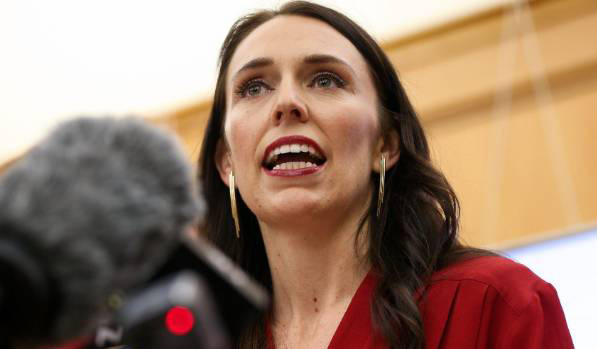Australia/Israel Review
AIR New Zealand: NZ urged to follow US lead
Jan 5, 2018 | Miriam Bell

Seeking an overview of the world’s response to important political news stories? Look no further than New Zealand. As a developed nation with a relatively small population and natural borders, it can often be seen as a microcosm of wider issues.
A prime example can be seen in the response to President Donald Trump’s declaration that the United States will now officially recognise Jerusalem as Israel’s capital and eventually move its embassy there from Tel Aviv.
The announcement has been greeted with enthusiasm from Israel and the Jewish diaspora, but by opposition and protest in many other quarters. In New Zealand, both official and public response followed a similar pattern.
Prime Minister Jacinda Ardern criticised the US move. She told media she has “no doubt it will make things difficult” and “won’t take us further” towards peace between Israel and the Palestinians. “Our view is that Jerusalem and issues around Jerusalem’s religious sites need to be resolved within the context of establishing a two state solution,” she added.
Foreign Minister Winston Peters, who has long been a supporter of Israel, said he didn’t think it would help for New Zealand to join in the chorus of critical statements. However, like Ardern, he doesn’t believe Trump’s move will help the peace process.
Peters told TVNZ. “Our position is we are not going to move our representation. We won’t be changing our view of where the embassy should be, it’s going to remain in Ankara.” [New Zealand’s embassy in Turkey is currently cross-accredited to Israel and there is a consulate in Tel Aviv.]
For New Zealand’s Jewish community, which has overwhelmingly welcomed President Trump’s announcement, the new government’s response was a let-down.
Zionist Federation of New Zealand president Rob Berg said its stance, and particularly that of PM Ardern, while predictable, was nonetheless disappointing. “Unfortunately, it showed a lack of understanding of the issues involved and a [submission] to the threat of violence from the Palestinian Arabs and the Muslim world.”
It is strange that New Zealand feels it can help determine the outcome of final status negotiations by co-sponsoring UN Security Council Resolution 2334, he said. “But recognising even West Jerusalem, which is within the 1949 armistice line, is not ok and counter-productive to final status talks. It makes no sense.”
For Berg, it seems absurd that Israel is possibly the only country in the world which is not given the right to choose where its own capital can be.
“Jerusalem is the seat of its parliament, the home of the Supreme Court, the Prime Minister and the President, and the place of business for foreign diplomats, even if their embassies are elsewhere. This move recognises reality,” he said.
In his view, New Zealand should follow the example of the US. “We hope that New Zealand will take the opportunity to redeem itself after co-sponsoring the anti-Israel UNSC resolution 2334 by following the US’s lead and also recognise Jerusalem as the capital of Israel.”
Israel Institute of New Zealand director David Cumin agreed, while cautioning that the US announcement simply formalises a two decade old piece of legislation. “But it is an extremely welcome move which finally recognises that a sovereign state should have the right to determine the location of its own capital and that terror should not win.”
The current situation is untenable, he said. “It’s the equivalent of foreign nations refusing to accept Wellington as the capital of New Zealand and choosing to locate their embassies in Palmerston North or Auckland. We’d be outraged.”
Cumin also called on New Zealand’s government to follow the US lead, “Our usually excellent relationship with Israel has been under a cloud since UNSC Resolution 2334 was passed in December 2016,” he said. “This provides the new government with a great opportunity to put that back on a firm foundation.”
Outside of political circles, the US announcement sparked a pro-Palestinian street protest, with activists claiming they were standing up for the peace and freedom of the Palestinians. They also called for the Israeli Embassy in Wellington to be closed.
Cumin told media it was sad to see so much hate expressed on the streets of Auckland. Instead of talking about building a Palestinian state, they are talking about destroying Israel, he said. “I think there’s room for both, but negotiations are the only way to peace.”
There is no reason why the relocated US Embassy, or a relocated New Zealand consulate, should be seen as a barrier to the establishment of a Palestinian State, he added.
“The proposed US Embassy will be located in West Jerusalem and will still comply with current international conventions. That means that Arab Palestinians still have the opportunity to have a capital in East Jerusalem. It is up to their leadership to decide if they want to continue political violence and ‘days of rage’ or if they want to negotiate for a better future for all,” he concluded.
Tags: Israel, New Zealand, United Nations






